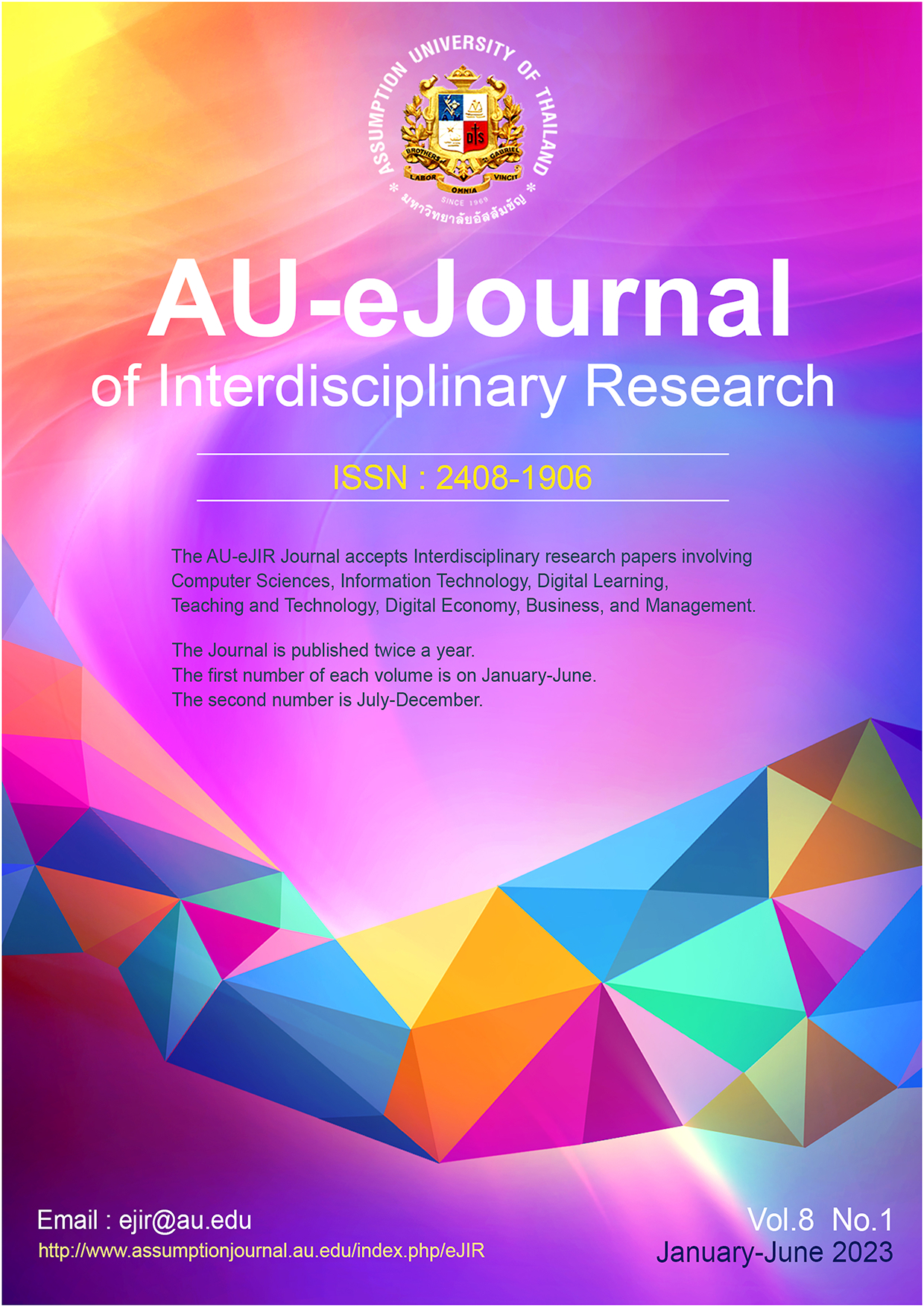ACCEPTANCE OF CRYPTOCURRENCY IN THAILAND
Keywords:
Blockchain Technology, Cryptocurrency, Digital Currency, Financial Investment, ThailandAbstract
Even though cryptocurrency is not yet legalised in Thailand nor a legal tender, the popularity of trading in cryptocurrency has risen from time to time in the market. From the perspective of financial firms or institutions, there are opportunities to establish financial services/products based on cryptocurrency investment in anticipation of the legalisation of cryptocurrency trading by the Bank of Thailand (BOT) and the Securities and Exchange Commission, Thailand (SEC Thailand). In the past few years, Asian countries, such as China, Japan, Vietnam and Singapore, have widely invested in cryptocurrencies in order to obtain a return on investment. Many countries, including Thailand, are aware of cryptocurrencies, especially in terms of taxation, Initial Coin Offering (ICO), legalisation and control and scamming. This study focuses on providing a deep analysis of the perceptions of Thai cryptocurrency investors. The investors’ demographic characteristics of gender, age, occupation, education level and income were examined as control variables. The data analysis was based on 898 respondents in Thailand and used a binary regression model. Based on the research, age, gender and income have a significant influence on cryptocurrency adoption. An increase of one unit of income will increase the adoption rate by 1.256.
References
Chatchawanchanchanakij, P. (2022). A causal relationship model of factor affecting the wealth creation of digital asset investment in Thailand. Journal of Positive School Psychology, 8720-8728.
https://journalppw.com/index.php/jpsp/article/view/9167
Dierksmeier, C., & Seele, P. (2018). Cryptocurrencies and business ethics. Journal of Business Ethics, 152, 1-14.
https://doi.org/10.1007/s10551-016-3298-0
Fauzi, M. A., Paiman, N., & Othman, Z. (2020). Bitcoin and cryptocurrency: Challenges, opportunities and future works. The Journal of Asian Finance, Economics and Business, 7(8), 695-704. https://doi.org/10.13106/jafeb.2020.vol7.no8.695
Fongthiwong, S., & Chancharoenchai, K. (2019). Financial innovation and technology in Cryptocurrency in a Bangkok Metropolitan Precinct. Journal of Economics and Management Strategy, 6(2), 55-72.
https://kuojs.lib.ku.ac.th/index.php/jems/article/view/2422
Klein, N. K., Lattermann, F., & Schiereck, D. (2023). Investment in non-fungible tokens (NFTs): the return of Ethereum secondary market NFT sales. Journal of Asset Management, 1-14. https://doi.org/10.1057/s41260-023-00316-1
Kraiwanit, T. (2023, March 27). Financial Technology. Cosmetics Solution. https://ssrn.com/abstract=4392930
Kraiwanit, T., & Chomtosuwan, T. (2023, April 17). Crypto Study. Cosmetics Solution.
https://ssrn.com/abstract=4392932
Ku-Mahamud, K. R., Omar, M., Bakar, N. A. A., & Muraina, I. D. (2019). Awareness, trust, and adoption of blockchain technology and cryptocurrency among blockchain communities in Malaysia. International Journal on Advanced Science, Engineering & Information Technology, 9(4), 1217-1222. https://core.ac.uk/download/pdf/296920012.pdf
Limna, P., Kraiwanit, T., & Siripipattanakul, S. (2023). The relationship between cyber security knowledge, awareness and behavioural choice protection among mobile banking users in Thailand. International Journal of Computing Sciences Research, 7, 1133-1151.
https://stepacademic.net/ijcsr/article/view/378
Limsakul, A., & Kraiwanit, T. (2020). Libra as a digital currency and its impacts on the Thai economy. AU EJournal of Interdisciplinary Research, 5(2), 110-118.
http://www.assumptionjournal.au.edu/index.php/eJIR/article/view/4807
Mohammed-Nabeel, K., & Sumathy, M. (2021). CryptoCurrency-Investors Awareness in India. Aayushi International Interdisciplinary Research Journal, 88, 286-291.
https://www.researchgate.net/publication/359393420_Crypto_Currency_-Investor's_Awareness _in_India
Senkardes, C. G., & Akadur, O. (2021). A research on the factors affecting cryptocurrency investments within the gender context. Journal of Business Economics and Finance, 10(4), 178-189. https://doi:10.17261/Pressacademia.2021.1463
Siripipatthanakul, S., Limna, P., Sriboonruang, P., & Kaewpuang, P. (2023). Applying the TPB and the UTAUT models predicting intentions to use telemedicine among Thai people during the COVID-19 pandemic. International Journal of Computing Sciences Research, 7, 1362-1384.
https://stepacademic.net/ijcsr/article/view/350
Sitthipon, T., Limna, P., Jaipong, P., Siripipattanakul, S., & Auttawechasakoon, P. (2022). Gamification predicting customers repurchase intention via e-commerce platforms through mediating effect of customer satisfaction in Thailand. Review of Advanced Multidisciplinary Sciences, Engineering & Innovation, 1(1), 1-14. https://ssrn.com/abstract=4080558
Sukumaran, S., Bee, T. S., & Wasiuzzaman, S. (2022). Cryptocurrency as an investment: The Malaysian context. Risks, 10(4), 11-17. https://doi.org/10.3390/risks10040086
Tangwattanarat, M. N. (2017). A study of the perception of Thai cryptocurrency investors towards digital currency market [Doctoral dissertation]. Thammasat University, Thailand. http://ethesisarchive.library.tu.ac.th/thesis/2017/TU_2017_5902040251_8421_6783.pdf
Vejačka, M., & Paľová, D. (2019). Attitude of Slovak citizens towards Cryptocurrencies: The gender differences. SSRG International Journal of Economics and Management Studies, 6(12), 141-150.
https://doi.org/10.14445/23939125/IJEMS-V6I12P116
Waroonkun, S., Chaomchuen, N., & Chaladdee, P. (2021). A study of knowledge, understanding and attitude towards digital assets. Taxation of Investors Who are Interested in Digital Assets, 3(2), 35-53. https://doi.org/10.14456/mjba.2021.8





